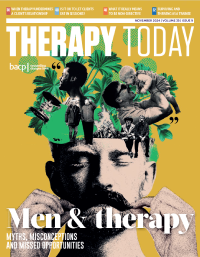I always knew I was adopted. The story of my parents packing a picnic and a baby basket in the car and driving to collect me was interwoven with the usual nursery tales. They always told me how much I was loved and that I had been chosen. Nevertheless, I still had this overriding feeling of rejection. Before I was chosen, I had been rejected. I imagined when I was born, I had ‘reject’ stamped on my forehead, was taken away from my birth mother, and filed away in a box..
I had seven cousins, two of whom were also adopted, but I noticed the others shared family resemblances. I felt different. Growing up, a friend was also adopted and we fantasised about tracing our birth mothers when we were 16. However, it took until my late 30s to actually do this.
I worried that my adoptive mother would be hurt. I tried to reassure her that I was not looking for a replacement. She was the one who had read me bedtime stories, patched up my knees and loved me all these years. I also worried what my children would think. Would they suddenly question whether their nana was their ‘real’ nana?
I saw an adoption specialist counsellor, arranged through my local authority service, which allowed me to think about what I was doing. They helped me to explore the what-ifs – what if she had passed away, moved abroad, was ill, didn’t respond, didn’t want to see me? How would I feel? In truth I had already explored these scenarios over the past 30 years. They gave me a folder containing the documents relating to my adoption. What blew me away were letters from my birth mother asking if I was getting vitamin drops and how I was, if I was happy. This was the first time I realised she had cared about me! It was a hugely emotional moment for me.
To cut a long story short, I did contact my birth mother and we had phone calls and letters for a few months. Eventually we decided to meet and I booked into a local hotel for the weekend to give us space apart from each other. My first surprise was that I had assumed that I would see myself in her and feel an instant connection but this didn’t happen. The weekend seemed to go well, but my second surprise was that she had no recollection of when I was born.
We continued writing and had the odd phone call but these dwindled until eventually she wrote to me asking that I never contact her again. Boom – I felt physically sick, like I had been punched in the stomach. Not only had this confirmed that I had been rejected but I had been rejected again. My world fell apart, and I could barely function.
Unsurprisingly I found myself seeking counselling. My GP booked me in for 10 free sessions through the practice, after which the counsellor referred me to a person-centred counselling agency to help me make sense of what had happened. I couldn’t go on feeling broken. My therapist was very gentle with me and our work took a year, giving me space to explore my feelings, grieve the loss of my birth mother and express my anger and disappointment safely.
My counsellor suggested I write things I liked about myself or was proud of in a notebook. I found this uncomfortable because I was more used to putting myself down, but it helped me rebuild my self-esteem and realise I was not unlovable – just because ‘she’ didn’t want me, didn’t mean other people didn’t. I also came to see that my mother’s reactions were ‘her stuff’, and learned to accept that there would be questions to which I would never know the answers.
The therapist encouraged my individuality, embedding a belief that it’s OK to be different, and facial similarity is not the only way to build good connections with people. Setting boundaries and learning how to say no reduced my peoplepleasing tendencies – I realised people wouldn’t necessarily stop liking me because I said no.
Counselling helped me feel better about being me. It also gave me the motivation and passion to do the training so I could become a counsellor and offer this to others.

